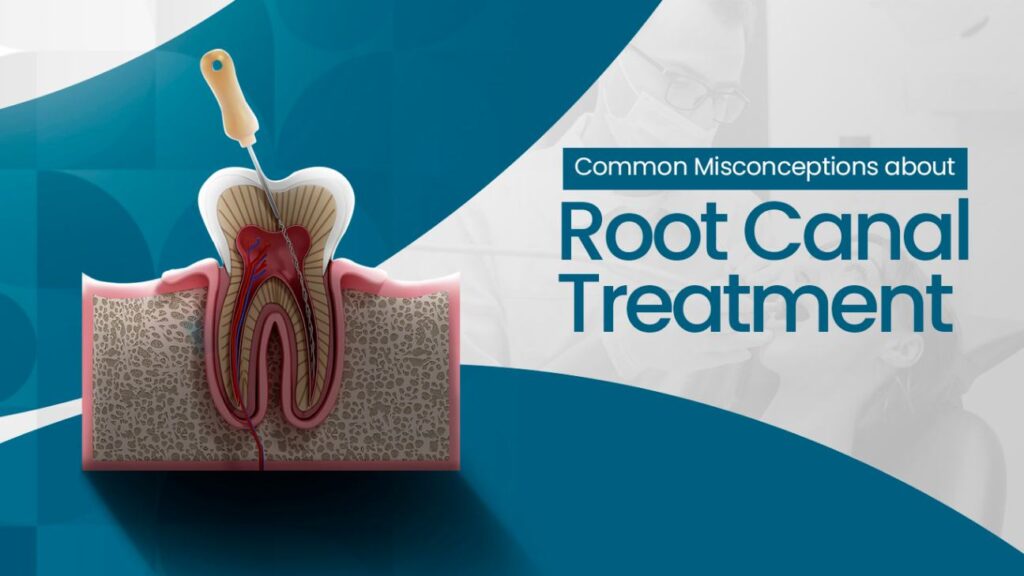Root canal treatment is a common dental procedure that aims to save an infected or badly decayed tooth rather than extracting it. During the procedure, the dentist removes the infected pulp tissue in the tooth root canal and seals the space. This treatment has been surrounded by several myths and misconceptions over the years that make patients anxious about getting it done. In this article, we bust some common root canal myths and provide accurate information about this life-saving dental treatment.
Myth 1: Root Canal Treatment is Extremely Painful
One of the biggest misconceptions about root canals is that they are extremely painful procedures. Patients are often anxious about the anticipated pain during and after the treatment. However, with modern technologies and anaesthesia, most patients report experiencing only mild discomfort rather than extreme pain. The insertion of anaesthesia into the tooth numbs it completely before the treatment begins. During the procedure, patients may feel some pressure and vibration in the tooth, but there is no pain.
Myth 2: Root Canal Treatment has a Poor Long-Term Success Rate
Another common myth is that root canal therapy does not last long, and the tooth will eventually need extraction. However, with proper care, a root canal-treated tooth can last for a lifetime. Clinical studies show that the success rate of initial root canal treatment is over 95% if done properly. In cases where an infection persists, retreatment can be pursued to save the natural tooth instead of opting for extraction right away. With advances in endodontic treatment and restoration techniques, root canal-treated teeth can have similar longevity as natural teeth. Regular dental visits, good oral hygiene, and protecting the treated tooth with a crown can ensure long-term success.
Myth 3: Root Canal Treatment Spreads Infection in the Body
A long-standing myth suggests that root canals may spread infection from the tooth to the rest of the body, leading to systemic diseases. However, scientific research has found no evidence to support this myth. The dental pulp is well-encapsulated within the tooth, and proper sterilization protocols are followed during root canal procedures. The infinitesimally small chance of bacteria entering the bloodstream is countered by our body’s immune system. There is no credible link between properly done root canals and diseases like cancer or kidney failure. However, leaving an infected tooth untreated can allow bacteria to spread and impact overall health.
Myth 4: A Tooth with No Symptoms Does Not Need Root Canal Therapy
Many people believe that only a tooth causing noticeable pain or discomfort needs root canal treatment. However, that is far from the truth. A tooth with deep decay or infection can appear perfectly normal with no pain or swelling. However, the infection is still active and spreading below the enamel and deep in the roots, causing progressive damage. Such “silent” infections end up destroying more tooth structures by the time obvious symptoms appear. That’s why dental X-rays are critical in detecting issues needing early root canal treatment, even if the tooth feels fine. This helps prevent tooth loss down the road.
Myth 5: Extracting the Tooth is Better than Root Canal Treatment
Extraction may seem like a simpler and cheaper solution, but saving the natural tooth through root canal treatment has major advantages. Extracting the tooth means losing that space eventually, which will require a bridge or implant to restore. Root canal therapy preserves your natural tooth and allows you to keep chewing and functioning normally. The procedure takes just 1-2 appointments, whereas implants require multiple visits over several months for the entire process. Extracting an infected tooth also has risks, like developing an infection in the bone socket. Saving your natural teeth as long as possible with root canals is always better for long-term oral health.
Bottom Line
Root canal treatment has come a long way with advanced equipment and techniques that enable safe, pain-free procedures with natural-looking outcomes. While myths about their safety and longevity may persist in popular culture, patients today can rest assured that modern root canal therapy is highly effective for treating infected teeth. Working closely with a trusted dentist and following their postoperative recommendations can help the treated tooth function healthily for years to come. Debunking prevailing misconceptions with accurate facts empowers patients to make informed decisions about their dental health.
If you need root canal therapy, turn to the experienced dentists at Bayswater Dentist. Our clinic has performed thousands of successful root canal treatments, saving patients’ natural teeth. Our dentists use advanced equipment and techniques to maximize patient comfort and long-lasting results.

